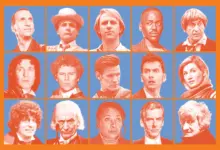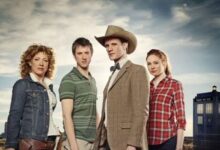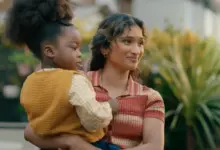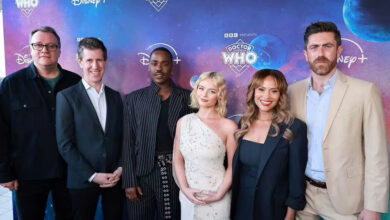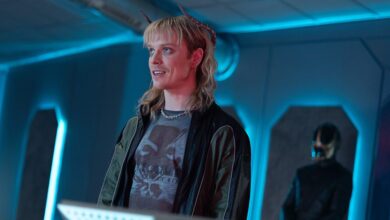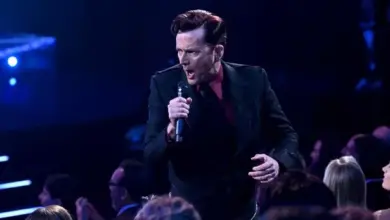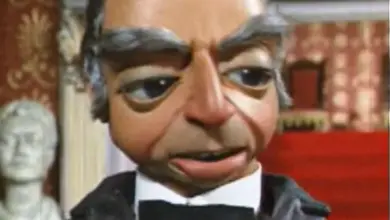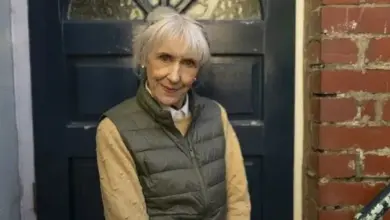Worst episode ever? Why Space Babies doomed Doctor Who
With interstellar infants and a monster made of snot, Ncuti Gatwa’s first full episode of Who broke fans’ hearts. How did all end in tears?
In space, nobody can hear you scream. But can they hear you gurgle? That was the question posed last year by the instantly divisive first full episode of Ncuti Gatwa’s tenure as the Doctor. Arriving amid huge anticipation in May 2024 and on the heels of a solid debut by Gatwa in the 2023 Christmas Special, Space Babies marooned the titular Time Lord on a spaceship populated by… talking infants – plus a “snot monster”. Some viewers were charmed by this tale of interstellar tots/snots. Others wondered if returning showrunner Russell T Davies, back after 14 years, was several microchips short of a sonic screwdriver.
“Space Babies was at the extreme end of light and fluffy,” says Rob Irwin, co-host of The Doctor Who Podcast. “To be running around a spaceship with some babies and a ‘snot monster’ – who was really just misunderstood [he was revealed to be a pet] – put some fans off from the start.”
Many never returned. Ratings for Davies’s second tilt at Who have nose-dived ever since – a decline that has accelerated through the latest season, which reaches its finale this weekend. So sharp has been the spiral – down 800,000 on 2024 and two million fewer than the not-especially-loved Jodie Whittaker era – there is speculation that the BBC is to quietly put Who out to pasture, with Gatwa strongly rumoured as leaving while will make him the shortest serving Doctor since Christopher “one and done” Eccleston in 2005). Are they “soft cancelling” a show which, some feel, caused itself irreparable damage with the insufferably twee Space Babies?

What’s especially baffling is that Davies – who presided over the Doctor’s glory years of 2005 to 2010 which gave us all-time great Who moments such as the Weeping Angels in Blink – did it all on purpose. Space Babies arrived early in the BBC’s £80m deal with Disney to stream Doctor Who outside the UK and Ireland on Disney+ (and chip in on the budget). Eager to appeal – perhaps “pander” is a better word – to a vast untapped audience of potential Whovians, Davies decided to go cuddly. He also apparently believed there was something innately hilarious about a spaceship full of talking babies, whose creepy CGI mouth movements allow them to be voiced by adult actors, including Sami Amber and Shola Olaitan-Ajiboye.
“I think the chance to do jokes – jokes like that on a bigger scale – is enormous fun,” Davies said. “And let’s face it, the freedom that I’m given and the trust I’m given by the BBC and by Disney+ is glorious.”
“Glorious” is not a word many fans have used about Space Babies, which arrived five months after Gatwa’s official debut in the solid Christmas special, The Church on Ruby Road (“delightful” proclaimed the Telegraph). After the Doctor and new assistant, Ruby Sunday (Millie Gibson), are catapulted through time to a space station, they encounter a robot guardian named NAN-E and a population of infants left behind on the abandoned structure.
The babies can talk – in squeaky and very annoying voices – and tell the Doctor about the Bogeyman. The monster was created by the ship in a misguided attempt to entertain the children and is inevitably made out of actual bogies. Although NAN-E (revealed to be a Golda Rosheuvel’s Jocelyn) wants to blast it out of the airlock – the fate suffered by HR Giger’s Xenomorph at the end of Alien – the Doctor saves it, and the babies adopt it as a sort of disgusting pet.

It wasn’t supposed to be like this when the BBC announced Davies was coming back to Who. His predecessor Chris Chibnall had allowed the series to descend into a purgatory of claggy, meandering plots – dragged out over multiple episodes yet rarely approaching coherence. (Can anyone explain what the “Lone Cyberman” arc was about? Even the Cyberman seemed confused.)
Davies, by contrast, had a reputation for “getting Who right”. As mentioned above, the Blink/Weeping Angels episode is considered one of the best in Who history (though it was actually written by Steven Moffat, who would succeed Davies as showrunner). He also gave us the terrifying “Flood” aliens in 2008’s Waters of Mars and teamed up the Daleks and Cybermen to winning effect with Army of Ghosts.
That said, Space Babies wasn’t breaking any hard and fast rules. Doctor Who has had some wacky concepts in its day: The farting Slitheens from Davies’s 2005 episode, Aliens of London, the Adipose creatures made of human fat from 2008 (another Davies concept – is this a pattern?).
But for sheer silliness Space Babies nonetheless took the interstellar biscuit – and a backlash against it has been building among the fanbase ever since, to the point where the episode arguably threatens to overshadow the entirety of the Gatwa era. Even for a character as long-established as the Doctor, first impressions count more than ever today – and Davies’s revamped vision of the franchise was hard to take seriously.
“This isn’t Dr Who. This is some of the worst TV I’ve ever seen. Seriously, the writing here is abysmal. I can’t imagine how it could get any worse. Worse is not conceivable,” wrote one aghast fan on a Doctor Who forum.
“The poorest I have ever seen due mostly to plot and themes,” agreed another. “Ncuti Gatwa needs better episodes written if he’s going to stand the test of time. Massive budgets and charisma from Ncuti don’t compensate for lame stories about space babies.”
That isn’t to say Space Babies is universally loathed. Some fans will argue passionately on its behalf. It has even been contended that the story is a moving metaphor for the plight of asylum seekers, caught – much like the babies in their space station – in limbo between their old and new lives.
“Underneath the snot and out-of-this-world peril of Space Babies, it’s a story about searching for a chosen family,” argued Digital Spy’s Jamie Windust. “The babies are repeatedly referenced as being refugees, looking for love and connection at a time when they are in desperate fear of the big bad monster that hears every step they make.”
And amidst all the hate and the occasional admiration, many Whovians take a more neutral view and acknowledge Space Babies has both strengths and weaknesses.
“I don’t believe Space Babies to be the worst episode of Doctor Who or even in the bottom 20,” says Doctor Who podcaster Philip Edney. “The production values are too high and some of the concepts are great. RTD has always started every season with a story that is a bit light and fluffy to hook audience.”
One issue with the episode, he feels, is that it does not play to Gatwa’s strengths. Quite the opposite – in expecting the actor to hold his own against a bunch of giggling babies, the script hangs him out to dry slightly. It exposes his limitations as an actor who can do emotion well but struggles to communicate the Time Lord’s cerebral qualities, which is what you need when trying to maintain a straight face against a rampaging snot monster.
“I loved him in Sex Education. But the high-level camp energy of [his Sex Education character] Eric or the sad, thoughtful Eric were the only two things Ncuti seemed able to bring to the Doctor. Some other actors are able to lift his performance,” said Edney. “But put him in a room with babies and you can really see his weakness. And, as it becomes apparent that he is going to cry in every episode, you start to wonder where the Doctor has gone.”

Davies’s error, many fans believe, was trying to appeal to a new audience while taking for granted the ardent Whoheads who have stuck by the show through good and bad. He also appeared to have buckled slightly under the pressure of re-imagining Doctor Who as a series that could thrive on streaming. And for what?
Disney is rumoured to have been unhappy with Space Babies – to the point where executives judged it unfixable (in contrast to the Christmas special in which they had inserted a scene in which an inflatable snowman falls on the Doctor). There was no tweaking a story about talking babies and snot monsters – so they just let it out into the world, as Davies intended.
“Doctor Who had gone through three very weak years of story and an actor who struggled with poor scripts and knowing who her Doctor was,” says Edney, referring to Gatwa’s predecessor Jodie Whittaker. “The hope was that this new era was going to fix all the issues and bring back Doctor Who. But what we got was Space Babies. That is what broke people’s hearts.”

